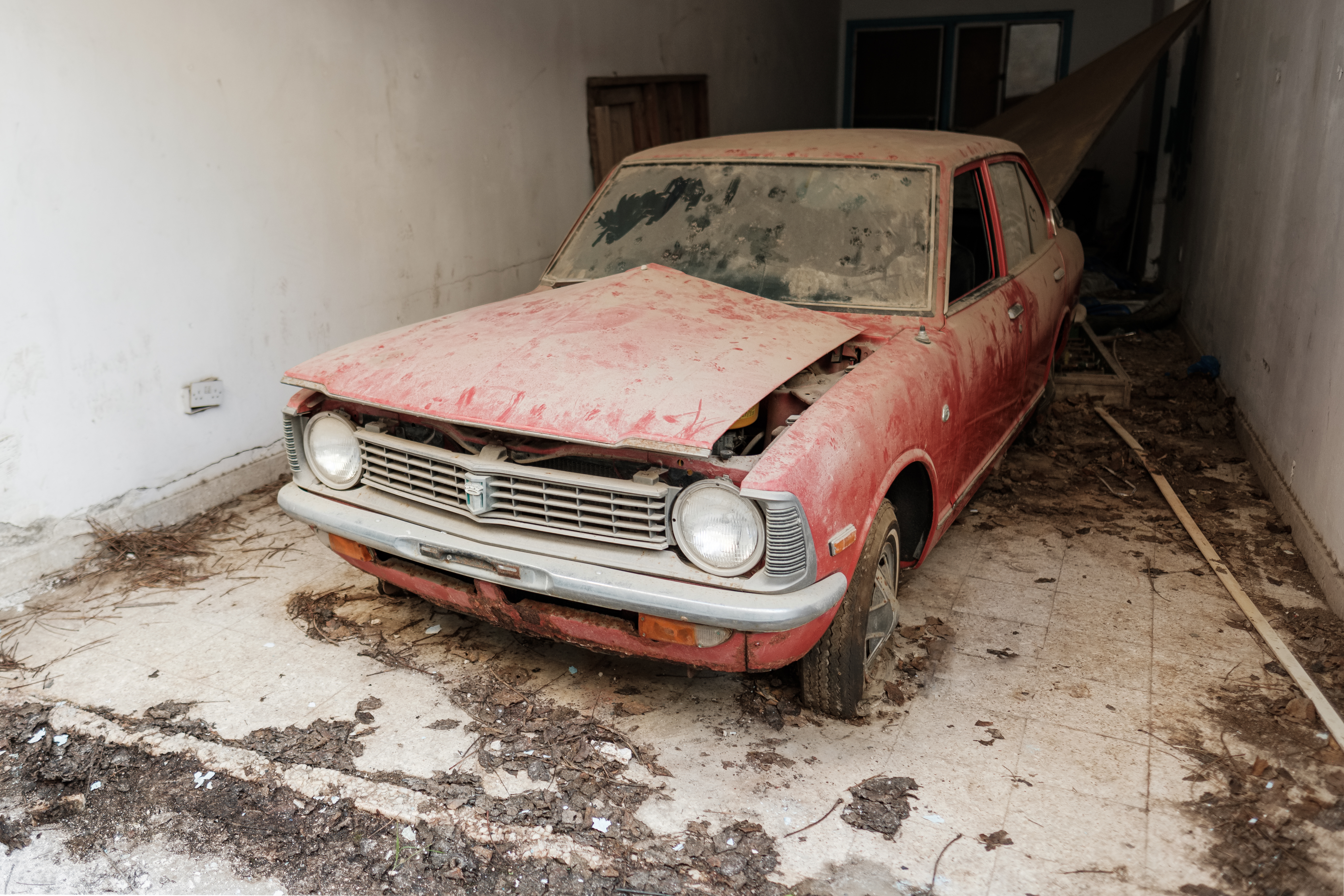By Mark Toner,
Senior State Department Advisor
There are two images seared into my brain from my visit to Cyprus during a recent congressional delegation led by Sen. Roger Wicker (MS).
The first was a darkened, underground garage filled with the rusting hulks of mid-1970s Toyotas. They were once the sparkling-new inventory of a car dealership situated in the heart of Nicosia, Europe’s last divided capital. Following the 1974 incursion by Turkish forces in the wake of a failed coup attempt, the dealership became part of a buffer zone that runs like a scar across the length of Cyprus, separating the Turkish Republic of Northern Cyprus (TRNC) and the Republic of Cyprus (RoC). The dealership’s owner fled when the fighting erupted and never returned. The cars sit frozen in time, waiting for customers who will never come.

Abandoned vehicle in Nicosia, Cyprus.
The second was both jarring and moving: at the Committee on Missing Persons, we entered a clean, cavernous room full of long tables on which an array of partially-reconstructed skeletons were arranged—the remains of some of the more than 2,000 people who disappeared during the outbreak of violence between Greek Cypriots and Turkish Cypriots in 1963-64, as well as during the later 1974 conflict. Located in a compound in the United Nations Protected Area near the old Nicosia airport, the Committee is an organization established by both the Greek Cypriot and Turkish Cypriot communities that recovers, identifies, and ultimately returns these remains to their still-grieving families and loved ones, using state-of-the-art DNA technology and an exhaustive scientific process.
These were just two of the places we visited during our two-day stay on the island as part of a bipartisan, bicameral delegation on its way to the Winter Meeting of the OSCE Parliamentary Assembly in Vienna, Austria. As part of our jam-packed schedule, the delegation met with the President of the Republic of Cyprus and Turkish-Cypriot leadership, and toured the UN buffer zone with the hardworking and good-natured UN peacekeepers who police the 112-mile ceasefire line.
Cyprus is among the world’s oldest and most intractable frozen conflicts, and the social, political, and economic tensions the conflict created still feel fresh today. Since the island was effectively split in two in 1974, there have been repeated UN-led attempts to broker a settlement and reunify the island, but all have ended in failure.
It is also a tale of two realities. While Greek Cypriots enjoy the benefits of EU and Eurozone membership and seek to exploit the potential of untapped hydrocarbon reserves located in an Exclusive Economic Zone that surrounds the island, those who live in the self-proclaimed Turkish Republic of Northern Cyprus remain politically and economically isolated from the rest of Europe and rely heavily on their big brother to the north, Turkey, for security and economic assistance.
Our visit to Cyprus was a stark reminder of the difficulty of moving past an unresolved conflict, in a place where grievances are often passed from generation to generation, and the ghosts of the past remain as tangible as the neglected shell of a crumbling 15th-century church in the UN buffer zone or the rusting hulks of airplanes still sitting on the runway of the abandoned Nicosia International Airport.
Our brief visit to the Committee on Mission Persons, however, was a poignant reminder of the vital importance of civil society in restoring a sense of normalcy once the fighting ends. It is a calming place, where dedicated people from both sides of the conflict work together to bring a sense of closure to those who lost loved ones in the fighting; it speaks to the fierce resiliency of the people of Cyprus and the enduring hope that old wrongs can yet be overcome.







